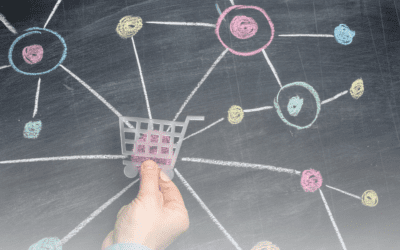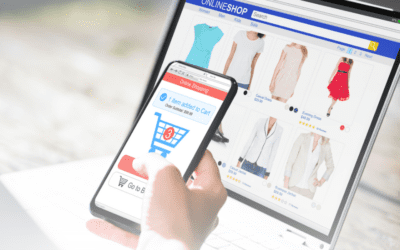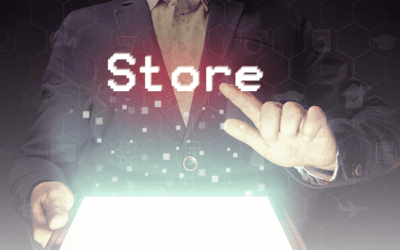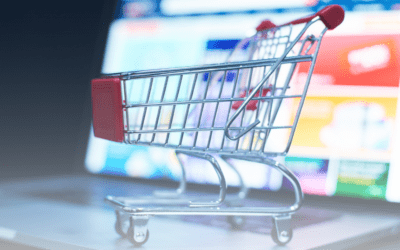Did you know that 80% of marketers believe live events are critical to their company’s success? Innovative event marketing strategies are essential for creating memorable experiences and driving success. This blog explores various tactics that can significantly enhance your event’s visibility and engagement.
Understanding Your Audience
The success of any event hinges on how well you understand and cater to your target audience. This crucial first step involves several layers of analysis and engagement to ensure that your event resonates with its attendees and meets their expectations.
1. Demographic Profiling
Start by defining the basic demographic characteristics of your potential attendees, such as age, gender, profession, and geographic location. This information can be gathered through past event data, industry reports, and registration information. Understanding these aspects helps in tailoring the event’s theme, language, and marketing channels to suit the audience’s preferences.
2. Psychographic Analysis
Go beyond basic demographics to explore the psychographics of your audience—this includes values, interests, lifestyles, and attitudes. Use surveys, social media analytics, and interactive content to gather data on what drives your audience. Are they motivated by education, networking opportunities, innovation, or entertainment? This deeper understanding enables you to craft messages and event features that align with their intrinsic motivations.
3. Behavioral Insights
Analyze the behavior of your target audience, particularly how they interact with similar events. Look at attendance patterns, ticket purchase timing, and feedback from previous events. What marketing tactics did they respond to most—email campaigns, social media interactions, or word-of-mouth? Understanding these behaviors helps in optimizing your marketing strategies and touchpoints.
4. Needs Assessment
Identify the specific needs and pain points of your audience. Why would they attend your event? What are they hoping to gain from it? This could range from gaining industry insights, earning professional certifications, networking opportunities, or experiencing new technologies. Tailoring your event to meet these needs not only boosts attendance but also enhances participant satisfaction.
5. Engagement Preferences
Determine how your audience prefers to engage with events. Do they favor in-person interactions, or are they more inclined towards virtual participation? Do they actively use social media to share experiences, or do they engage more with direct communications like emails? This will guide you in choosing the right platforms and formats for promoting your event and interacting with attendees before, during, and after the event.
6. Feedback and Adaptation
Implement mechanisms to capture ongoing feedback from your target audience about your marketing efforts and planned event features. This can be done through social media polls, feedback forms, or focus groups. Regularly adapting your strategy based on audience feedback ensures that the event remains relevant and appealing to its intended participants.
By thoroughly understanding your audience along these dimensions, you can create more targeted, effective event marketing strategies that not only draw attendees in but also foster greater engagement and loyalty, making your event a notable success.
Planning & Considerations for Event Marketing
Effective event marketing requires a nuanced approach throughout different phases of the event lifecycle. Here’s how you can optimize each stage to maximize engagement and ticket sales:
1. Pre-Event Registration
Early Bird Campaigns: Launch an early bird registration campaign offering discounted prices for a limited time to incentivize early sign-ups. For instance, you could offer tiered pricing where the first 50 registrations receive a 30% discount, the next 100 receive 20%, and so on.
Automation Tools: Utilize platforms like Eventbrite or Cvent, which can automate the registration process and track the effectiveness of your early bird campaign in real-time. These platforms also provide tools for creating promotional codes and tracking which channels are driving the most registrations.
Marketing Integration: Integrate these campaigns with email marketing tools like Mailchimp to send targeted reminders to potential attendees who have shown interest but haven’t completed their registration.
2. Event Launch and Registration
Press Releases: When launching your event, craft press releases that highlight the unique aspects of your event, such as keynote speakers, exclusive performances, or innovative session formats. Distribute these through PR Newswire or directly to industry-specific publications to maximize exposure.
Influencer Partnerships: Collaborate with influencers who align with your event’s theme. Equip them with specific content like interview snippets from speakers or VIP behind-the-scenes tours to share with their followers. Measure the success of these partnerships through engagement rates and the use of unique promo codes provided to the influencers.
Content Strategies: Develop a content calendar that includes posting speaker interviews, panel previews, and other engaging content that provides a taste of what attendees will experience.

3. Day-To-Day Marketing
Countdowns: Use social media stories and posts to create a countdown until the day of the event, highlighting different features or “what to expect” snippets each day.
Behind-the-Scenes Footage: Share videos or live streams of event preparations or sessions being set up to build excitement and give a sneak peek into the scale and quality of the event.
Attendee Spotlights: Feature past attendees or registered participants in your promotions, where they share their experiences and what they look forward to at the event. This creates social proof and encourages others to register.
4. Registration Closing
Urgency-Creating Tactics: Implement last-minute marketing strategies as the registration end date approaches. This could include limited-time flash sales, countdown timers on your event page, and targeted email blasts highlighting the “last chance to register.”
Social Media Blitz: Conduct a social media blitz with paid ads emphasizing the closing of registration, using dynamic creative that includes testimonials and clips from previous events to create FOMO (fear of missing out).
Direct Outreach: Consider direct outreach to potential attendees who may have shown interest but did not complete the registration. Use personalized emails or SMS to remind them of the upcoming deadline and the value the event promises.
Event Marketing Strategies & Ideas
Event marketing encompasses a variety of innovative strategies designed to engage potential attendees, increase brand visibility, and enhance the overall impact of events. Here are some effective event marketing ideas that can help elevate any event:
1. Virtual Reality Experiences
Utilize virtual reality (VR) to create immersive pre-event experiences for attendees. This can be especially effective for large-scale events like concerts or product launches, allowing potential attendees to preview what to expect in a compelling, interactive manner.
- Implementation: Utilize VR technology to transport potential attendees into a virtual environment that mimics the event space or offers a unique, immersive experience related to your event’s theme. For example, for a music festival, create a VR experience that takes users backstage with the artists or right into the middle of a past festival performance.
- Tools & Platforms: Use platforms like Oculus Rift or HTC Vive to create these experiences. Consider partnering with VR developers to create custom environments that can be accessed via your event app or website.
- Benefits: VR experiences can significantly increase interest and excitement for the event by providing a tangible taste of what’s to come. It’s particularly effective in capturing the attention of a tech-savvy audience and can be a standout feature in your promotional materials.
2. Influencer Collaborations
Partner with influencers who align with your brand’s values to amplify your event’s reach. Influencers can share exclusive content, offer their followers special discounts, or host meet-and-greets during the event, drawing more attendees and generating buzz.
- Strategy Development: Identify influencers who not only align with your brand values but also have engagement with an audience that matches your target demographic. Develop a collaboration plan where influencers can participate in the event in meaningful ways—such as hosting panels, taking over your social media on the day, or creating exclusive content about the event.
- Engagement Tactics: Equip influencers with unique promo codes that they can offer to their followers, which provides a discount on event tickets or exclusive access to certain parts of the event. Additionally, set up meet-and-greet or photo opportunities with influencers during the event to encourage more attendees to participate.
- Measurement: Track the effectiveness of influencer partnerships through metrics such as ticket sales from promo codes, increases in social media followers, and engagement rates on posts related to the event.
3. Interactive Workshops
Beyond traditional seminars and presentations, offer interactive workshops that allow attendees to engage directly with your product or service. This hands-on approach not only makes the event more memorable but also provides real value to participants.
- Workshop Design: Design workshops that are directly relevant to the event’s focus. For example, at a tech conference, offer coding workshops, or at a culinary event, provide cooking classes with celebrity chefs. Ensure these workshops are interactive and allow hands-on participation, which could range from using specific software tools to physically creating a product.
- Participant Benefits: Clearly communicate the benefits of these workshops, such as learning new skills, gaining insider knowledge, or receiving certification. Highlight these workshops in your event promotion to attract attendees interested in these specific opportunities.
- Facilitation Tools: Use technology like mobile apps for workshop sign-up and feedback, and incorporate tools such as live polls or collaborative platforms for a more interactive experience.

4. Live Streaming
Make your event accessible to a broader audience by live streaming presentations, performances, or panels. This strategy not only increases your event’s reach but also allows for interaction through live chats and Q&A sessions, engaging remote attendees.
- Platform Selection: Choose robust platforms capable of streaming high-quality video, such as YouTube Live, Facebook Live, or professional services like Livestream or Vimeo Live. Consider the geographic location of your audience to ensure the platform you choose can deliver a smooth streaming experience globally.
- Engagement Features: Enhance the live streaming experience by incorporating interactive elements such as real-time polls, Q&A sessions, and live chat features. Encourage online viewers to interact by asking questions and participating in live discussions.
- Hybrid Events: Position your event as a hybrid, catering both to physical and virtual attendees. Promote virtual attendance as a viable option for those who cannot attend in person, emphasizing that virtual attendees will receive the same level of engagement and access to content.
5. Gamification
Incorporate elements of gamification such as challenges, contests, and rewards into your event. This could include a scavenger hunt that encourages attendees to explore different aspects of the event or social media challenges that reward sharing event-related content.
- Implementation: Design a series of gamified activities that can be embedded throughout the event. For instance, a scavenger hunt using QR codes placed around the venue can encourage attendees to visit different stands or sessions, capturing points for each interaction. These points can then be redeemed for rewards like exclusive content, merchandise, or discounts on future events.
- Social Media Integration: Launch social media challenges that encourage attendees to post about the event. For example, a hashtag contest where the most creative post wins a prize. This not only engages your attendees but also amplifies your event’s reach online.
- Technology Tools: Utilize event apps like Scavify to manage gamification elements efficiently, tracking participant progress and facilitating reward distribution.
6. Sustainability Initiatives
Market your event with a focus on sustainability to attract eco-conscious attendees. Promote your use of sustainable practices such as digital tickets, recycling stations, and partnerships with green vendors.
- Sustainable Practices: Promote eco-friendly initiatives such as using digital tickets to reduce paper waste, providing stations for recycling, and sourcing materials and food from local green vendors. Make sure these practices are well-communicated in your marketing materials and during the event.
- Partner with Eco-Organizations: Collaborate with environmental organizations to certify your event as green, which can enhance your event’s appeal to eco-conscious attendees.
- Educational Components: Include sessions or booths dedicated to educating attendees about sustainability in your industry, reinforcing the theme and your commitment to it.
7. Customized Event Apps
Develop a customized app for your event that provides attendees with the ability to personalize their schedules, network with other attendees, access event materials, and receive real-time updates and notifications.
- App Features: Develop an event app that allows attendees to customize their event schedules, interact with other attendees via a networking portal, and access maps and session details. Implement push notifications to keep attendees informed of real-time updates or changes.
- Engagement Tools: Incorporate features such as live polling, session feedback, and Q&A functionalities to increase interactivity and collect valuable data from attendees.
- Integration with Wearables: Enhance the experience by integrating your app with wearable devices, enabling attendees to receive notifications and access information directly from their wrist.
8. Popup Events
Create popup events in different locations to generate interest and buzz around your main event. These can be small-scale versions of your event or unique, standalone experiences that tie back to your main theme.
- Strategic Locations: Host popup events in key locations where potential attendees gather, like industry hotspots or popular public areas. These events can serve as teasers for the main event, offering a snapshot of what attendees can expect.
- Themed Activities: Each popup event could focus on a specific aspect of the main event’s theme, creating a cohesive narrative leading up to the main event. For example, a tech conference could have popups focusing on different tech trends.
- Social Media Leverage: Use these popups as an opportunity for live content creation, encouraging visitors to share their experiences on social media, further promoting the main event.
9. Retargeting Ads
Use retargeting ads to reach individuals who have visited your event page but haven’t purchased tickets. Tailored ads can remind them of the event’s value and nudge them toward registration.
- Ad Targeting: Use data from your event page visitors to create retargeting campaigns on platforms like Facebook, Instagram, and Google Ads. Tailor these ads to highlight what they’ll miss out on if they don’t attend, emphasizing unique speakers, experiences, or potential networking opportunities.
- Custom Offers: Include special offers or limited-time discounts in your retargeting ads to convert hesitant visitors into attendees.
- Analytics: Monitor the performance of your retargeting ads in terms of conversions and adjust your messages or offers accordingly.
10. Post-Event Engagement
After the event, keep the conversation going by sharing highlights, video recaps, and photo albums. Engage attendees with surveys to gather feedback and encourage them to book early for future events.
- Content Sharing: After the event, share professionally edited highlights, video recaps, and photo albums through your social media channels and email newsletters. This not only keeps the event fresh in the minds of attendees but also serves as promotional material for future events.
- Feedback Collection: Send out post-event surveys to gather insights on what worked and what didn’t. This data is invaluable for improving future events.
- Early Bird Registration: Offer an early registration discount for your next event to attendees who provide feedback, encouraging continued engagement and loyalty.
These strategies can be tailored to fit any event type, from corporate conferences to music festivals, ensuring that every event is a resounding success.
Engagement During the Event
To ensure active participation and enhance the overall experience at the event, focus on real-time engagement opportunities and facilitating interactions. Live streams and webinars can be particularly effective, especially if they include interactive elements such as live Q&A sessions with speakers. This approach not only increases audience participation but also boosts satisfaction by allowing attendees to voice their questions and get immediate responses.
Additionally, consider organizing networking sessions or workshops that are designed to foster interactions among attendees. These activities can be structured to promote meaningful exchanges, helping participants form new professional connections and engage more deeply with the event content.
Post-Event Engagement
Continuing to engage with your attendees after the event is crucial for maintaining interest and setting the stage for future initiatives. Share highlights, photos, and recap videos across your event’s platforms to keep the conversation going and remind attendees of the valuable experiences they had. This content serves not just as a recap but also as a marketing tool for upcoming events. Furthermore, collecting feedback from attendees is vital for iterative improvement.
Encourage them to provide reviews and suggestions about what they liked and what could be improved. This feedback is instrumental in refining your event marketing strategy and enhancing the overall event experience in future iterations. By actively engaging attendees post-event and showing responsiveness to their feedback, you foster a sense of community and ongoing dialogue that can enhance loyalty and attendee retention.
Key Takeaways
- Knowing your audience allows for tailored marketing strategies that resonate and engage effectively.
- Different phases of event marketing require unique strategies and focus—from initial buzz to final ticket sales.
- Digital content and social media are powerful tools for building community and engagement around your event.
- A strong, visually consistent brand helps make your event memorable and promotes higher engagement.
- Engaging attendees before, during, and after the event maximizes impact and builds lasting relationships.
Connect with Proforma Battlefield for Tailored Promotional Solutions
Whether you’re looking to elevate your brand presence or seeking innovative promotional products, Proforma Battlefield is your go-to partner. Our commitment to quality, creativity, and efficiency sets us apart in delivering customized solutions that resonate with your audience.
Interested in a bespoke promotional strategy? Contact us today to discover how we can help your brand shine.




